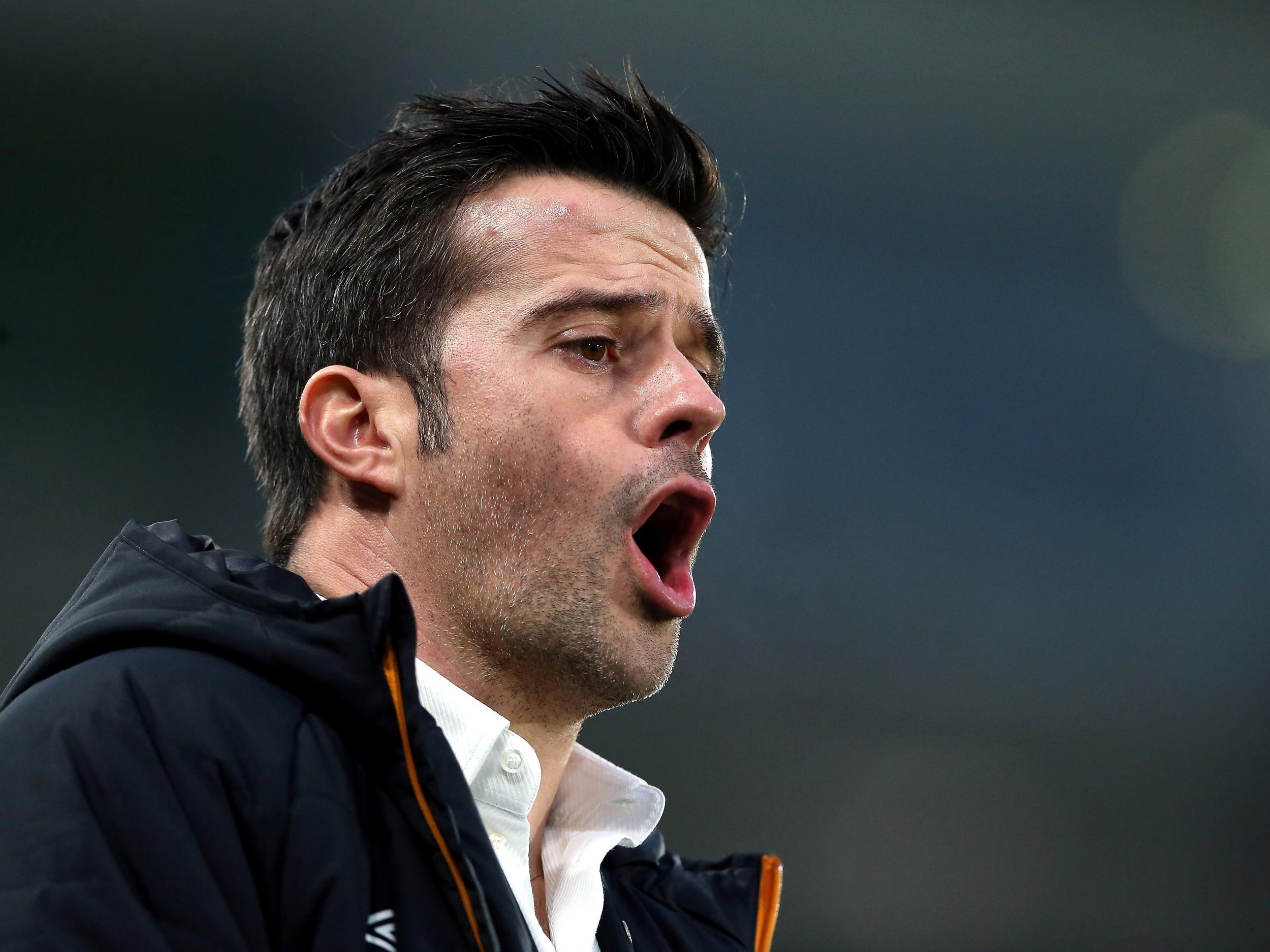Hull vs Bournemouth: How Marco Silva took Estoril from the brink of collapse into the Europa League
Hull's new manager became Estoril manager at just 34, and transformed the club, taking them into Europe, through strength of character alone

Marco Silva knows what it feels like to be captain of a sinking ship. That is how he felt at Estoril in 2009, near the bottom of the Portuguese second tier, with not enough money to pay his team-mates and the club facing imminent collapse.
Silva was coming to the end of his own unremarkable playing career, but he knew that the duties of a football captain and a sea captain were the same. He knew that he must be the last man to abandon ship, when all other hope was lost. So when exasperated unpaid team-mates were threatening to leave, Silva persuaded them all to stay. He knew that help was on its way, in the form of Brazilian agency Traffic Sports whose money would save the club.
By persuading his team-mates to stay on board and keep playing, Silva ensured that the club continued to exist. He was, according to one well-placed source, the “only reason the club did not shut down”.
Silva saw it as his role to represent the players to the new Brazilian owners, keeping a close eye on the takeover negotiations, to hear what their plans were for salaries and transfer spending. And when the takeover went through, Silva made sure to hold the new owners to the promises initially made to his team-mates.
Why does this all matter, seven years on, not in Lisbon, but in Hull? Because Silva, now 39 years old, is trying to rescue a situation almost as desperate. He is trying to hold Hull City together, and keep them in the Premier League, with just his own ability and character to call upon. Because Hull are short on points, players and money. And yet Silva still hopes he can keep them afloat, starting on Saturday in the league after two cup games so far.
The story of Silva and Estoril is far more than just a rescue job. Once the Brazilian money arrived, he was just the same, a busy, charismatic, persuasive presence at the small club in Cascais, the tourist resort on the Lisbon coast. Traffic brought more than a whole team’s worth of their own Brazilian clients to Estoril, but Silva made them feel welcome and helped to integrate them into the group.
By this point Silva was barely playing any more, as his body was failing him. But he stayed around as a go-between between board-room and dressing-room, between the club’s Portuguese and Brazilian elements. Fittingly enough, in summer 2011 he was made sporting director.
But three games into that season, the Brazilian coach Vinicius Eutropio was sacked. The team was struggling, and there were fears of another relegation. There was no more money left to spend and Estoril needed an internal solution. So they drafted in Silva straight from the boardroom, 34 years old and with no coaching experience.
Much has been made of comparisons between Silva and other precocious Portuguese coaches, Jose Mourinho and Andre Villas-Boas. But Mourinho learned about management working underneath Bobby Robson and Louis van Gaal, at Porto and Barcelona. Villas-Boas spent his 20s working for Mourinho himself at Porto and Chelsea. Silva had no elite apprenticeship. Management was thrust upon him young and he had to be ready.
But it was at Estoril that he made his name, saving a club from oblivion. It was miracle work comparable to Leicester City. At Hull, Silva will have to do something just as hard
What is so remarkable is that Silva arrived in management fully-formed. He instantly transformed Estoril, uniting the players behind his brave expansive football. Estoril finished the season top of the second tier and were promoted to the top flight.
That was achievement enough, but what followed was even better. Estoril, with one of the smallest budgets in the Portuguese top flight, in their rickety 5,000 capacity ground, finished an implausible fifth under Silva’s management, qualifying for the Europa League for the first time in their history. They played 4-3-3, pressing high up the pitch, and won admirers all over Portugal. That summer Estoril lost four first-teamers to Portugal’s big three, Porto, Sporting and Benfica, a harsh reminder of their place in the Portuguese football food chain. One of those players, Evandro Goebel, is set to join Silva at Hull next week.
But despite all these departures, and despite the natural weight of gravity, the next season, 2013-14, was even better. Estoril climbed even higher, with even less resources, and finished fourth, matching the best league finish in their history, recorded in 1948. Only the big three finished ahead of them. Not bad for a team that was on the brink of going under five years before.
That was the end of Silva’s time there, and he went on to great success at Sporting Lisbon and Olympiacos. He learned about winning trophies, competing in Europe and, in the cases of Bruno de Carvalho and Evangelos Marinakis, how to work for maverick owners. But it was at Estoril that he made his name, saving a club from oblivion and guiding them out of the second tier and up into Europe. It was miracle work comparable to Leicester City. At Hull, Silva will have to do something just as hard. Starting against Bournemouth on Saturday afternoon.
Subscribe to Independent Premium to bookmark this article
Want to bookmark your favourite articles and stories to read or reference later? Start your Independent Premium subscription today.

Join our commenting forum
Join thought-provoking conversations, follow other Independent readers and see their replies